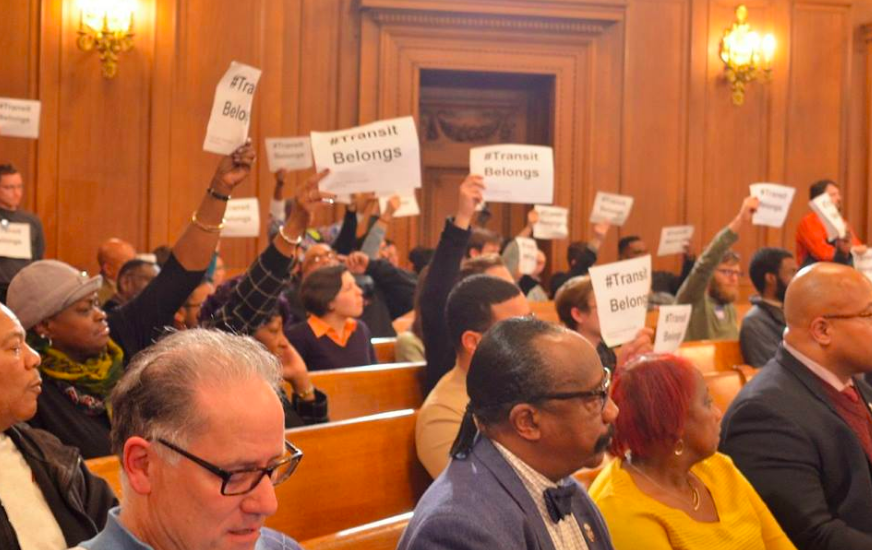It looks like bus riders in Cleveland will reclaim their place in the city center.
After booting buses out of Public Square as part of a $50 million redesign, Mayor Frank Jackson appears to have capitulated and RTA is preparing to reopen the space to buses in March. That would end a seven-month closure that led to systemwide bus delays and gained national notoriety as a case study of how local governments mistreat bus riders.
Public Square is the nexus of the region's bus system, where nearly three-quarters of the region's buses travel and passengers make 20,000 transfers each weekday. The redesign initially called for making Public Square car-free while leaving a cross-street, Superior Avenue, open to buses.
But following the opening in August, Jackson unilaterally decided to ban buses completely, despite the delays to bus riders and about $1.5 million in added operating costs for the cash-strapped Greater Cleveland Regional Transit Authority. Not so much as a hearing was held on the decision until months later.
Advocates and City Council members called out Jackson for stigmatizing bus riders while catering to affluent tourists, but in the end, it took a threat from the Federal Transit Administration to reverse the decision.
Last month, federal officials informed the RTA that Jackson had violated the terms of a grant agreement for the Healthline, a bus rapid transit route on Euclid Avenue. The FTA threatened to pull $12 million in funding from that project which had been allocated to establish downtown bus lanes, including the stretch of Superior closed by Jackson.
Jackson didn't seem concerned at first. His administration asked for multiple extensions. The city completed a second study and found the closure had imposed more than a minute of delay for the average rider and would cost RTA $800,000 a year. Still the mayor was unmoved. He argued RTA had withheld information from the city and acted in bad faith.
The FTA finally lost patience and told Jackson the $12 million would be due March 7 if the square was not reopened, and no more extensions would be granted. That was what forced Jackson's hand.
The mayor has not issued an official directive, but the Plain Dealer reports that RTA hopes Public Square will be reopened to buses on March 6. RTA and the city have been testing bus runs through the square.
Throughout the closure, Jackson maintained that he was motivated by public safety concerns. He cited the Nice terror attacks to justify keeping the square closed to buses. But while the mayor and his political allies couched their position in other terms (the Plain Dealer defended Jackson by deriding "block long," "wheezing" buses), many observers said the removal of buses from Public Square was plainly a case of discrimination.
Councilman Zach Reed was explicit about the role of race and class in the decision. At a City Council hearing on the matter, he read comments from Cleveland.com that referred to bus riders as "thugs" and "low-lives."
Reed told Streetsblog he was encouraged by recent developments.
"I think it’s unfortunate that the riders had to go through this inconvenience," he said. "I understand that there will be times, for special events and other activities, that Public Square will be closed to traffic. I understand the safety concerns, but overall this is a win for bus riders."






